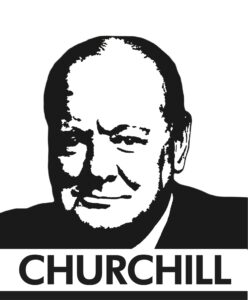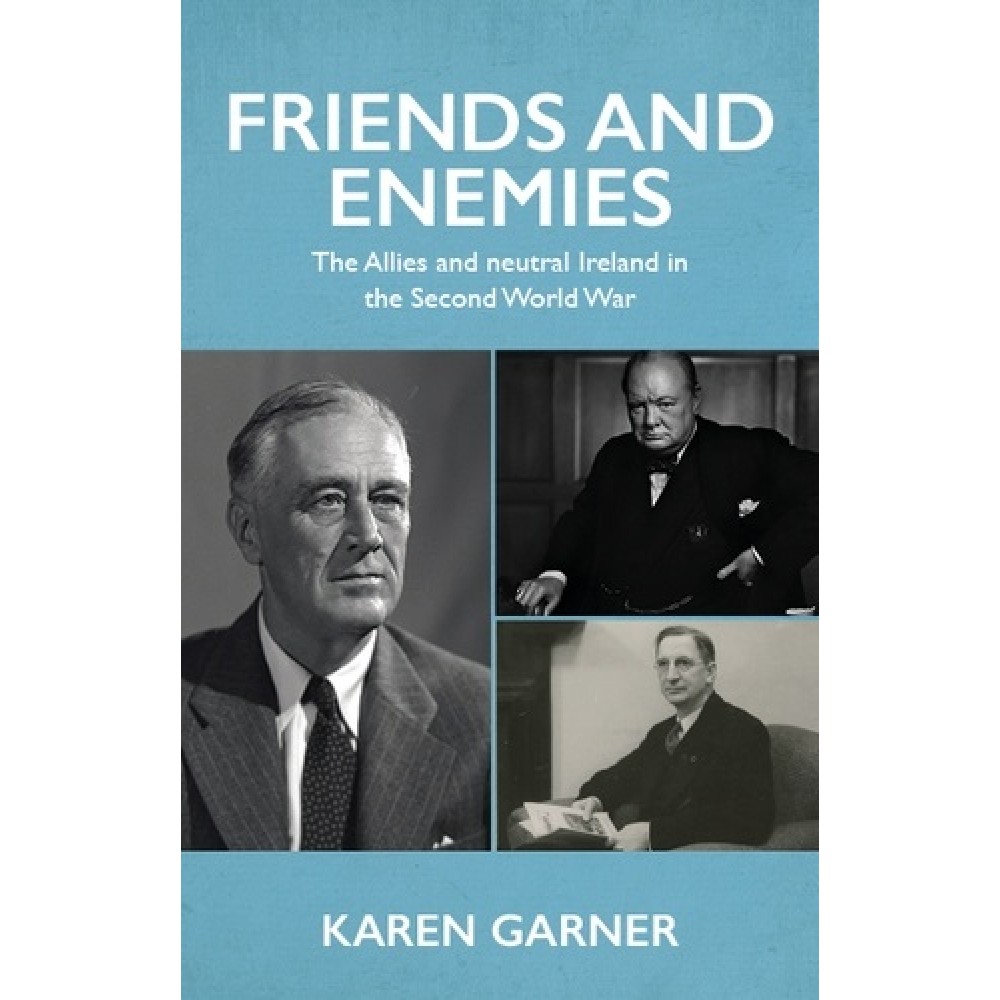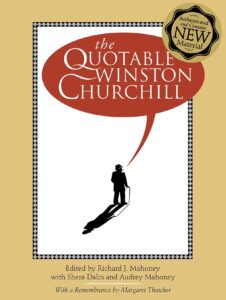
Finest Hour 197
Books, Arts, & Curiosities – “Where Is Ireland?”

March 31, 2024
Finest Hour 197, Third Quarter 2022
Page 45
Review by David Freeman
Karen Garner, Friends and Enemies: The Allies and Neutral Ireland in the Second World War, Manchester University Press, 2021, 248 pages, £80/$120. ISBN 978–1526157294
The Second World War placed the government of Ireland in an impossible position. Nominally a member of the Commonwealth, Ireland, uniquely among the self-governing dominions, maintained a policy of neutrality throughout the conflict. Realistically there was no alternative, but a steep price had to be paid.
When Germany invaded Poland in 1939, only sixteen years had passed since the Irish Civil War had ended. That conflict in no small measure had been driven by the refusal of Eamon de Valera to accept the results of the 1921 Anglo-Irish Treaty that resulted in British recognition of Irish self-government, albeit only after the partitioning of the island that kept the six northeastern counties in the United Kingdom.
One hundred years ago, at the cost of his life, Michael Collins led the pro-treaty forces that ultimately prevailed in 1923. Nevertheless, de Valera’s Fianna Fáil party came to power within a decade, and “Dev” went on to serve as Taoiseach throughout the Second World War.

2025 International Churchill Conference
De Valera’s major pre-war accomplishments included the adoption of the 1937 constitution, which formally named the country Éire, and securing the agreement of the British government in 1938 to relinquish the treaty rights it held for the Royal Navy to operate from three ports in Éire. Two were on the southern coast: Berehaven (Castletown) and Spike Island (off modern Cóbh, formerly Queenstown). The third, Lough Swilly, lay in County Donegal, the northernmost region of Ireland.
As one of the architects of the Anglo-Irish Treaty and the man responsible for its implementation, Winston Churchill bitterly criticized the government of Prime Minister Neville Chamberlain for surrendering control of the treaty ports. Having served as First Lord of the Admiralty in the early months of the First World War, Churchill knew how vital the Irish ports were in defending Britain against the threat of German U-boats.
Returning to the Admiralty at the start of the Second World War, when the U-boat danger became truly critical, Churchill understandably began considering how the Royal Navy might regain the use of the Irish ports. Granting access, however, would effectively make Éire a belligerent and subject it to German attacks.
If Ireland were located east of Britain, it would undoubtedly have been invaded and easily overrun by the Nazis. As it was, after the defeat of France, the Germans did draw up plans for an invasion of Ireland as a preliminary to an assault on Britain, the same approach once considered by Bourbon France. As was the case in the United States before Pearl Harbor, however, the overwhelming majority of the Irish people adamantly refused to become involved in the war until directly attacked.
In adopting and ruthlessly maintaining a policy of neutrality, the de Valera government was simply following the will of the Irish people. Yet it may also have missed the most promising chance in the twentieth century of ending the partition of Ireland. As First Lord and then as Prime Minister, Churchill in the first two years of the war was prepared to consider anything to gain use of the Irish ports, including putting heavy pressure on the Ulster Unionists to join politically with Éire.
De Valera never understood the Unionists. While insisting that the Irish people had a right to self-determination, he consistently denied that the Unionists had the same right. In his world, the Unionists did not even exist. He preferred to believe that partition was the result of British imperialism and no different from the German occupation of the nations of Europe.
When Churchill sent Malcolm MacDonald to Dublin to discuss restoring the Royal Navy’s access to Irish ports, de Valera’s response was that Britain should surrender control of the northeast counties, which would then become part of a unified and still neutral Ireland. In other words, de Valera’s counter-offer was to propose denying Britain access to all of the ports in Northern Ireland. This was such a non-starter that MacDonald did not even bother to report it back to London.
Even before the United States entered the war, President Franklin Roosevelt supported Britain’s struggle against Germany and Churchill’s efforts to regain use of the Irish ports. FDR sent David Gray, an uncle by marriage to Eleanor Roosevelt, as his ambassador to Dublin. Gray made himself unpopular through his consistent and inevitably unsuccessful efforts to induce de Valera into changing his mind, but there was nothing Dev could do to have Gray recalled, since the American had the full confidence of the President and was doing his master’s bidding.
Unwisely, de Valera sought to use Frank Aiken, his primary adviser on foreign policy, to manipulate the opinion of IrishAmerican voters, then a powerful constituency in Roosevelt’s Democratic party. Aiken was no diplomat, however, and his futile efforts only antagonized and infuriated the President.
Churchill saw the attack on Pearl Harbor as de Valera’s last chance to get “on side,” but nothing had changed in Ireland. By 1943 the issue of the ports had become irrelevant. The Allies had finally broken the code used by the U-boats, and developments in anti-submarine warfare neutralized the threat for good. When the question of Ireland was again raised in Cabinet, it was Clement Attlee who observed that there was no longer any point in offering to assist in ending partition when Éire no longer had anything of value to offer the Allies.
While de Valera scrupulously adhered to the rights of a neutral to the bitter end of the war, Ireland found itself shut out of the post-war settlement as a result. For ten years it would be blocked from joining the United Nations, only to be admitted eventually as part of a “package” deal between the US and the USSR.
The Irish vote in the United States, which had very much made and funded de Valera in the 1920s, also lost what influence it once had. In a 1942 letter to Gray, Roosevelt relayed the following incident: “The other day one of his [de Valera’s] friends over here—a typical professional Irish American—came in to tell me about the terrible starvation among the people of Ireland. I looked at him in a much interested way and quietly remarked, ‘Where is Ireland?’”
Karen Garner tells this rich and complicated story through the use of solid archival research. Ireland joining the Allied cause was a “what if?” that could never have been.
Subscribe
WANT MORE?
Get the Churchill Bulletin delivered to your inbox once a month.





